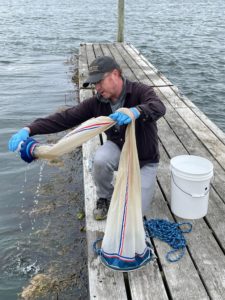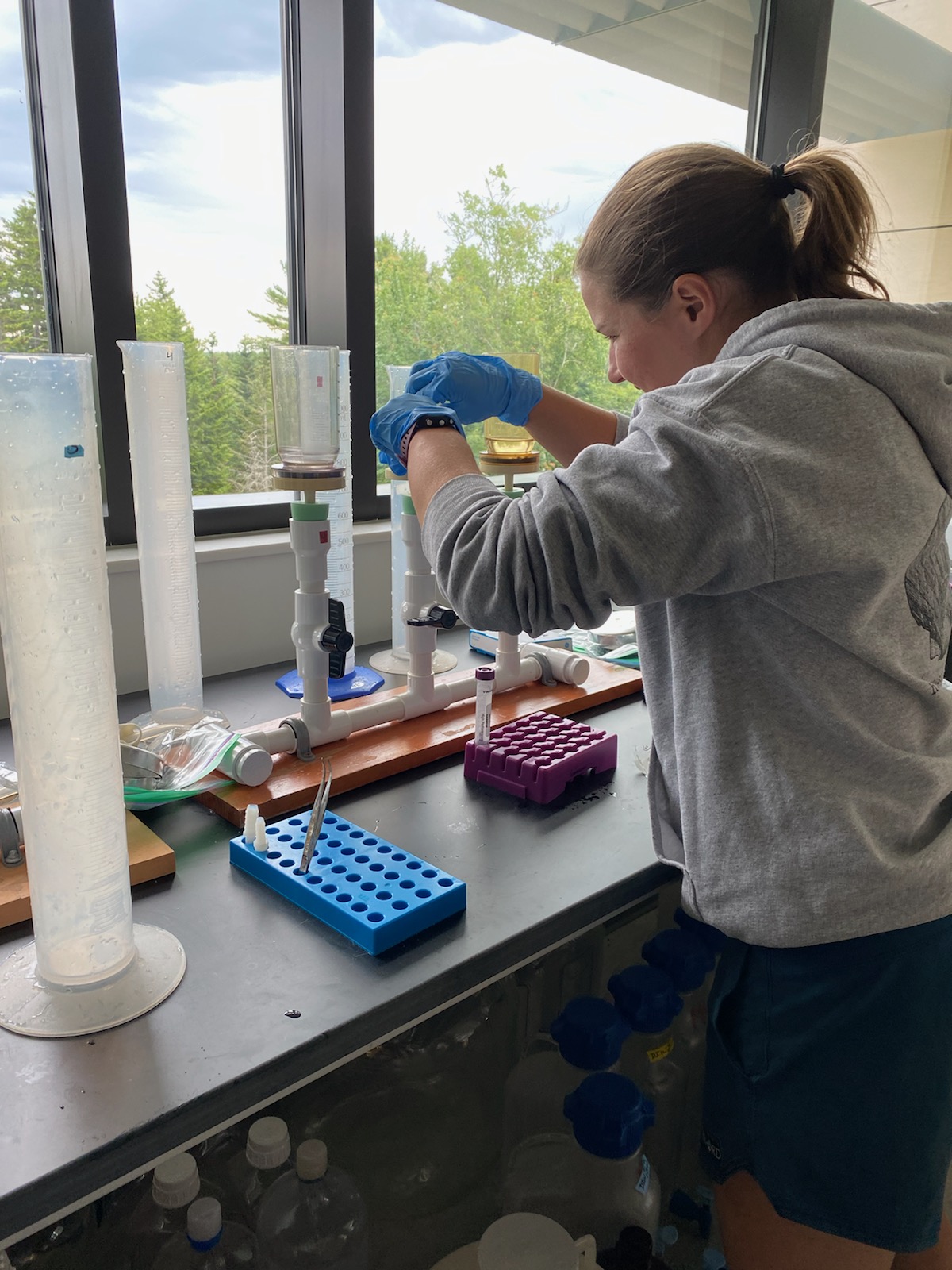We are partnering with the Bigelow Laboratory for Ocean Sciences to apply eDNA to our work building sustainable fisheries in the Gulf of Maine. As an adaptation to climate change, harvesters have been shifting their efforts to harvesting quahogs (aka hard shell clams). This species of clam is increasing in abundance (perhaps due to their tolerance of warmer waters and thick shells which protect them from predation) and growing in value as it becomes more common alongside oysters at raw bars and seafood restaurants.
In 2018, we supported efforts in Georgetown, Maine to expand the quahog population by transplanting 50,000 adult quahogs with the goal of establishing a self-sustaining population. This summer, we are using eDNA to gauge whether or not the transplanted quahogs are spawning and producing larvae.
Recently, we sat down with Dr. Pete Countway to discuss the partnership between Manomet and Bigelow.
Tell us a little bit about the Bigelow Laboratory for Ocean Sciences.
![]() Bigelow is a private nonprofit research organization. Our mission is to develop a better understanding of coastal and open ocean ecosystems through the application of technology and via partnering with other nonprofits and other research organizations to try to address some of the pressing issues facing the oceans right now.
Bigelow is a private nonprofit research organization. Our mission is to develop a better understanding of coastal and open ocean ecosystems through the application of technology and via partnering with other nonprofits and other research organizations to try to address some of the pressing issues facing the oceans right now.
Of course, there’s a lot of focus on developing leaders in the aquaculture industry here in Maine. But, increasingly, we are thinking a lot about the sustainability of those efforts and how we promote healthy coastal ecosystems that will continue to benefit the state.





 Back to all
Back to all
 I’m a microbiologist and oceanographer by training. Most of my work is focused on phytoplankton communities, the diversity of these communities, and their change over time. And not just one or two functional groups, but we try to look at them as high resolution as possible, meaning that we do a lot of genetic analysis of these communities. Essentially, we use high-throughput DNA sequencing to kind of tease apart these microbial communities. And by comparing one sequence to another, we can figure out how many different unique types there are in an ecosystem and how these organisms change over time. Maybe, these changes are in response to temperature or nutrient availability or just changes with the seasons, depth in the water column, or even geographic distance.
I’m a microbiologist and oceanographer by training. Most of my work is focused on phytoplankton communities, the diversity of these communities, and their change over time. And not just one or two functional groups, but we try to look at them as high resolution as possible, meaning that we do a lot of genetic analysis of these communities. Essentially, we use high-throughput DNA sequencing to kind of tease apart these microbial communities. And by comparing one sequence to another, we can figure out how many different unique types there are in an ecosystem and how these organisms change over time. Maybe, these changes are in response to temperature or nutrient availability or just changes with the seasons, depth in the water column, or even geographic distance.